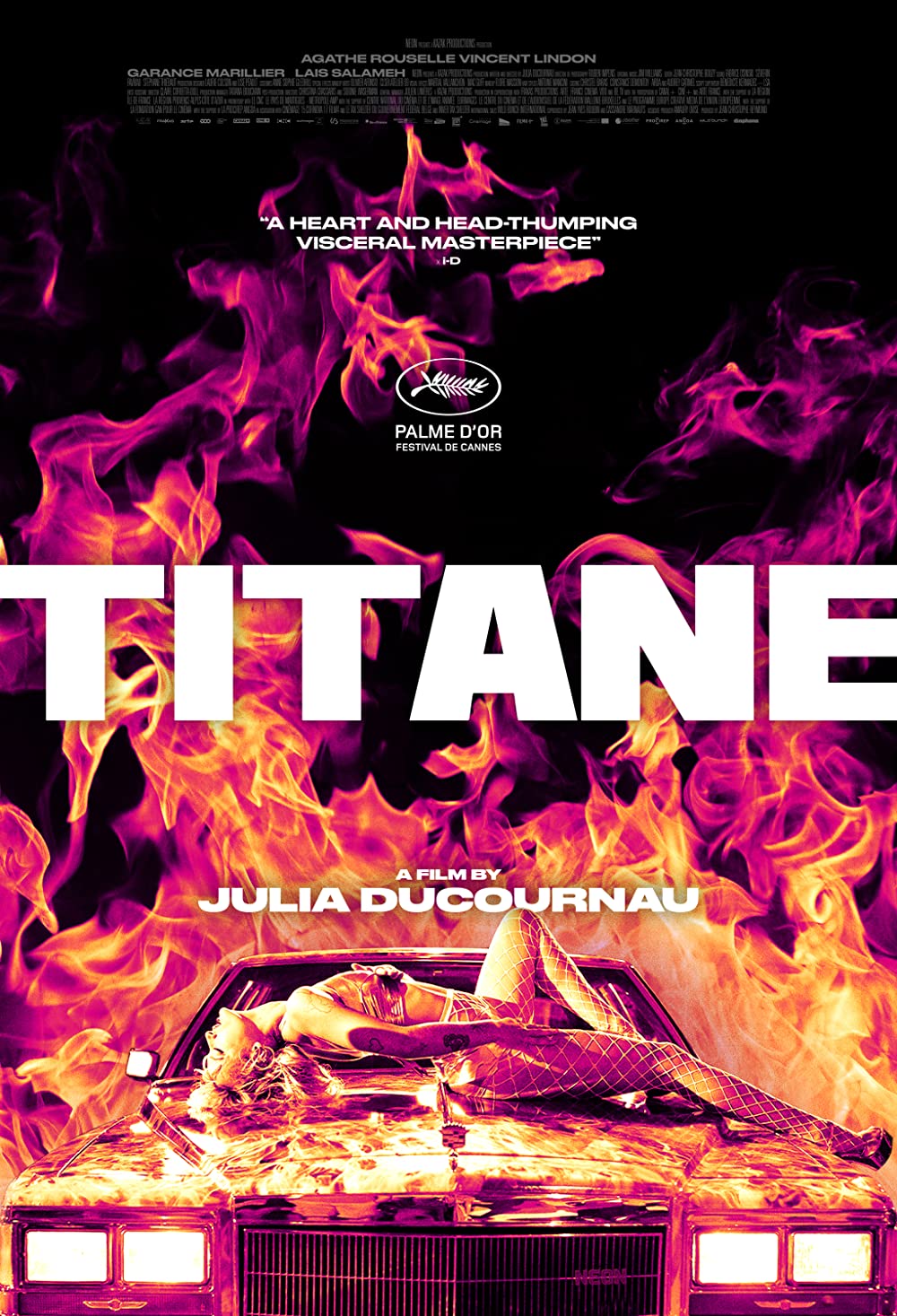By Julius De La Rama, Film and Television, Third Year
While the comparisons to the body horror works of David Cronenberg are apt, Titane exists as a confounding, visceral yet refreshingly sincere experience that shines on its own merit and creativity. Julia Ducournau takes audiences on a transporting, brutal journey through the eyes of two humans desperate for transformation by any means possible.
Titane’s direct translation is titanium. A material that is cold, brittle, and susceptible to breaking at standard room temperature, but its properties become malleable and ready for customisations at much higher temperatures. Alexia (played by the exhilarating Agathe Rouselle) captures this state of change, this malleability in every second she is on screen. A formative car accident leaves her with a titanium plate in her head, and with that comes a lingering carnal desire for metal (whether it is a structure and materials of a Cadillac or the piercings on a woman with which she has a one night stand). She weaves in and out of interactions with bloody consequences, and paired with a constant drive for something new, we witness her adaptability in thrilling fashion. This is all challenged, however, by Vincent - a captain of a firefighter service (played by Vincent Lindon). Lindon’s supporting performance captures a uniquely painful portrait of grief, a stern rigidness of routine, and a towering physicality that deserves universal acclaim. The relationship between Alexia and Vincent should not be spoiled here — I truly believe that it must be seen to be believed.

Ducournau continues her visceral streak of body horror following her debut feature, Raw. Her strengths as a director have skyrocketed, capturing some truly hypnotic sequences regarding the erratic power of the human body, and some of the most satisfyingly brutal cinematic moments of the past decade. Channeling the greatness and pure shock value of David Cronenberg and acclaimed body horror auteur Shinya Tsukamoto (Tetsuo: The Iron Man), audiences have to prepare themselves for a barrage of blood, sex and violence; some moviegoers at my screening were recoiling in disgust, but others were howling with laughter. I was left in sheer disbelief. It is one of the finest, grossest examples of how a film can teeter between catastrophe and utter compassion.

Titane’s examinations of metal and flesh, bodily frustrations, and public expectations of masculinity/femininity coalesce into a cinematic experience that shatters narrative (and gender!) expectations altogether. One of its biggest strengths is that every moment continually keeps you guessing. Its distinctiveness lets the film unravel at breakneck speed - you’ll have your mouth ajar, or you’ll be peeking through the gaps in your hands, or you’ll be on the edge of your seat. Ducournau lets the temperature, the stakes, and the violence rise higher and higher. By the time Titane reaches its climax, you’ll have no idea what to do with yourself.

While it’s baffling that Ducournau is only the second woman to win the prestigious Palme d’Or (after The Piano by Jane Campion), it is no surprise that Titane won at this year’s Cannes Film Festival. I haven’t seen a work about unconditional love that is this invigorating, this chaotic, and this refreshing in a long, long time. Make sure you see this in the biggest, loudest cinema you can find.
Featured Image: IMDB
Have you checked out Titane yet?









